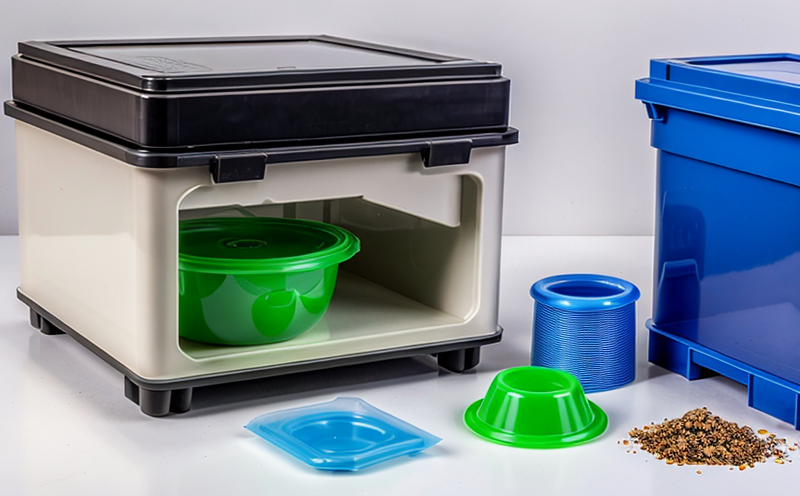ASTM D1894 Plastic Films and Sheets Coefficient of Friction Testing
The coefficient of friction (COF) is a critical property in determining the performance characteristics of plastic films and sheets, especially those used for packaging. This test, specified by ASTM D1894, measures the static and kinetic COF between two surfaces. Static COF refers to the force required to start sliding an object across a surface, while kinetic COF is the resistance encountered during continuous motion.
Understanding these values helps in optimizing film design for specific applications such as sealing, handling, and printing processes. For instance, films used in packaging need to have a balance between low static COF to facilitate easy opening and high kinetic COF to prevent slippage. The test is particularly important when considering the environmental factors that may affect these surfaces.
The ASTM D1894 standard specifies detailed procedures for measuring the coefficient of friction using either a block-on-block or disc-on-disc apparatus. The choice between the two depends on the specific requirements and available equipment. The test setup typically involves placing one surface (e.g., plastic film) against another, such as a steel plate, and then applying a force to initiate movement.
Specimen preparation is crucial for accurate results. Samples are cut into standardized sizes and shapes to ensure consistency across tests. The surfaces of the specimens must be clean and free from any contaminants that could affect friction values. It’s also important to control environmental conditions such as temperature, humidity, and cleanliness during testing.
The ASTM D1894 standard provides specific acceptance criteria for both static and kinetic COF values. These criteria vary based on the intended use of the plastic film or sheet. For example, films used in food packaging might have different requirements compared to those used in industrial applications. Compliance with these standards ensures that the materials meet industry quality expectations.
Instrumentation plays a key role in ASTM D1894 testing. The equipment must be capable of accurately measuring forces and displacements, which are then converted into COF values. Modern instruments often include sensors for precise force measurement and automated data collection systems to ensure consistency and repeatability.
The results from this test provide valuable insights into the mechanical properties of plastic films and sheets. These can influence decisions regarding material selection, process optimization, and quality assurance. Understanding the friction characteristics allows manufacturers to tailor their products more effectively to meet market demands while ensuring regulatory compliance.
| Applied Standards |
|---|
| - ASTM D1894: Standard Test Method for Coefficient of Friction of Plastic Films and Sheeting Using a Disc-on-Disc Apparatus |
| - ASTM D6203: Standard Practice for Specimen Preparation of Plastics for Testing |
Why It Matters
The coefficient of friction testing is essential in ensuring that packaging materials perform optimally under various conditions. Proper COF values enhance the efficiency and safety of handling processes, reduce waste during manufacturing and distribution, and improve overall product quality.
- Handling Efficiency: Low static COF ensures easy opening of packages, while high kinetic COF prevents slippage, enhancing worker safety and reducing material damage.
- Environmental Impact: Understanding friction characteristics helps in selecting materials that reduce energy consumption during transportation. This is particularly relevant for large-scale logistics operations where frictional forces play a significant role.
- Regulatory Compliance: Meeting COF standards ensures compliance with international regulations, thereby protecting the reputation of manufacturers and distributors.
- Cost Efficiency: Optimizing COF can lead to reduced costs in terms of packaging design, material usage, and processing time. This translates directly into lower production costs and improved profitability.
In summary, ASTM D1894 testing is a vital tool for quality assurance in the packaging industry. It helps manufacturers produce materials that are not only functional but also environmentally friendly and cost-effective.
Applied Standards
| Applied Standards |
|---|
| - ASTM D1894: Standard Test Method for Coefficient of Friction of Plastic Films and Sheeting Using a Disc-on-Disc Apparatus |
| - ASTM D6203: Standard Practice for Specimen Preparation of Plastics for Testing |
Industry Applications
- Packaging materials like shrink wrap and stretch film.
- Film used in food packaging to ensure it is easy to open while preventing contamination.
- Materials for industrial applications such as conveyor belts, where friction properties affect efficiency.
- Films used in pharmaceutical packaging that require specific handling characteristics to maintain product integrity.
The results from ASTM D1894 testing are particularly useful for quality control departments and R&D teams. They can use the data to refine existing products or develop new ones tailored to meet market needs better.





